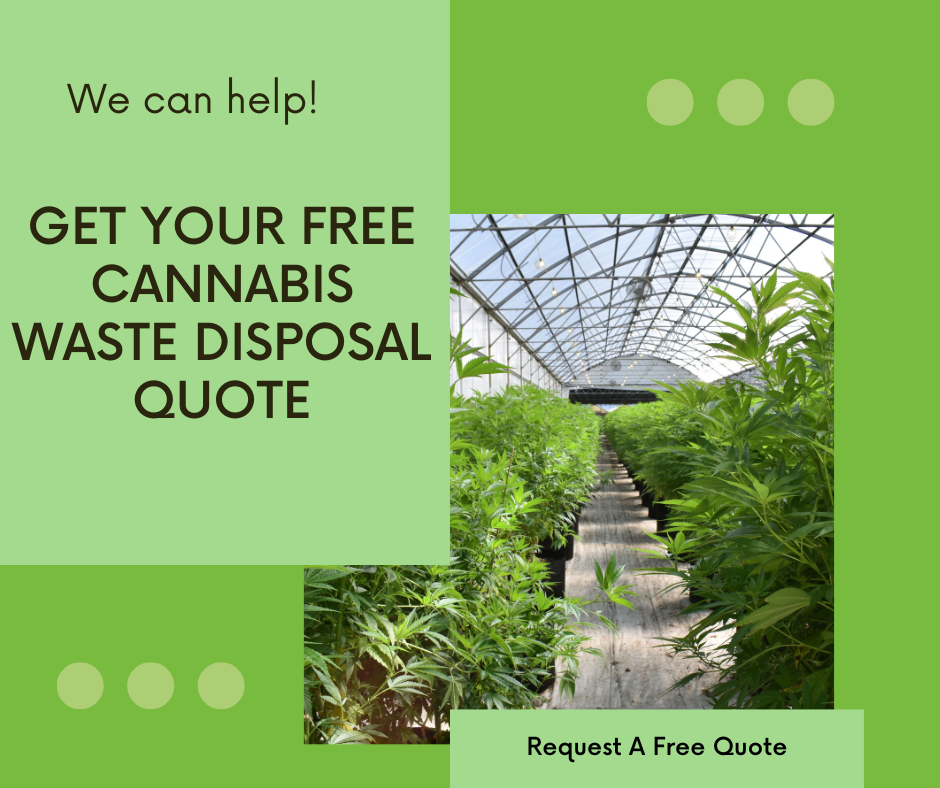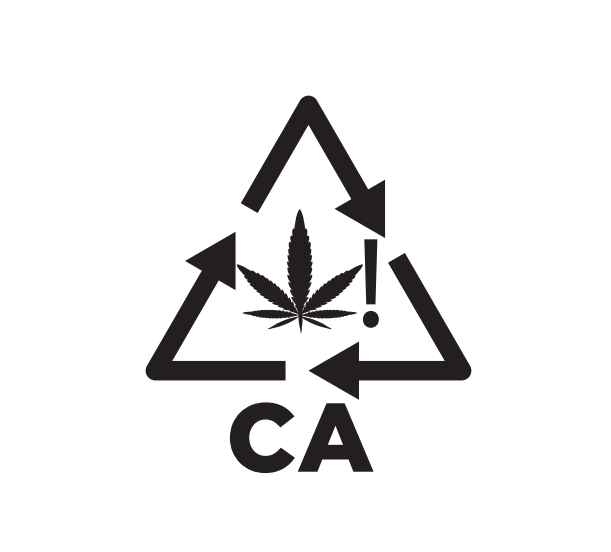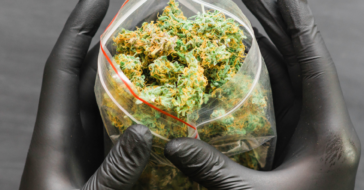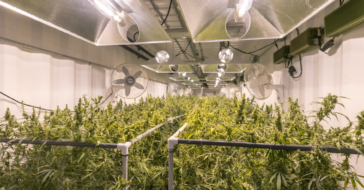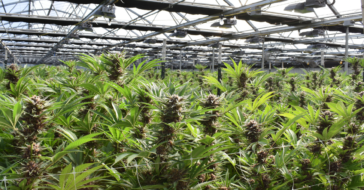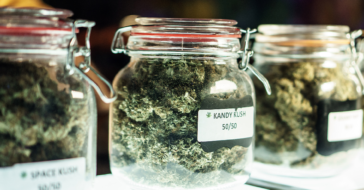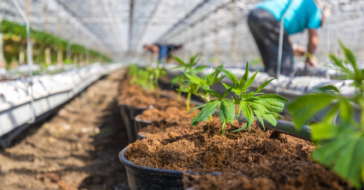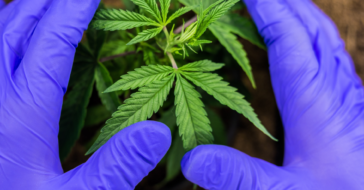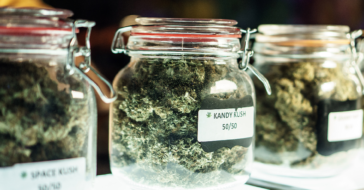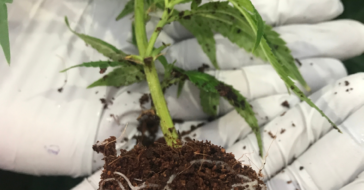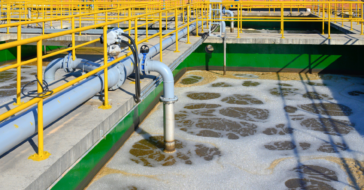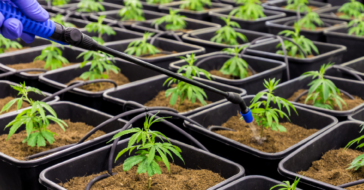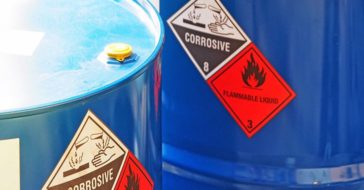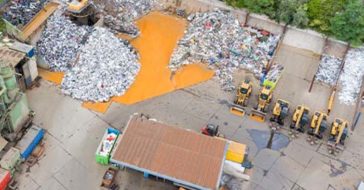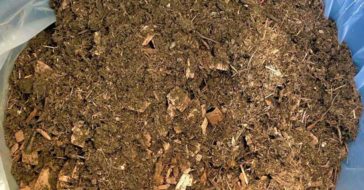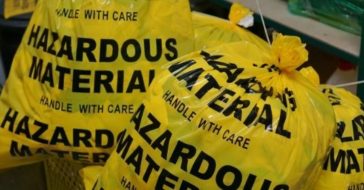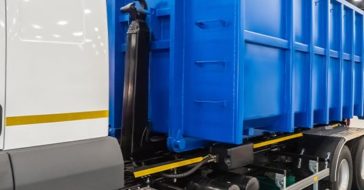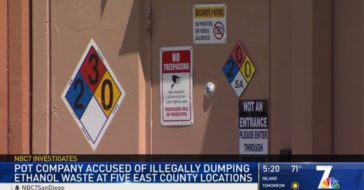The number of cannabis plants harvested in California reached just over 35 million in 2023, according to the California Department of Cannabis Control.
With a staggering volume of cultivation, it’s inevitable that a significant amount of cannabis waste is generated. As a cannabis business, you face critical decisions regarding waste management processes. Opting for sustainable solutions like recycling addresses environmental concerns and aligns with the growing demand for eco-conscious practices within the industry.
If you’re considering ways you can make your mark on the cannabis industry, recycling the remarkable amount of waste you’re likely to generate is a good place to start. Here are some recycling solutions that may be available to you, as well as the type of partner you need to ensure your cannabis waste is managed responsibly and sustainably.
Recycling Solutions For Cannabis Waste
As the legal cannabis industry continues to expand, the availability of diverse recycling solutions for cannabis waste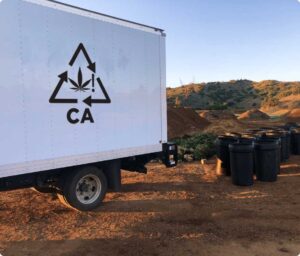 offers a promising opportunity to reduce your environmental impact and promote sustainability.
offers a promising opportunity to reduce your environmental impact and promote sustainability.
Cannabis waste can be recycled and repurposed in several ways, depending on local regulations and the specific needs of the industry. Here are some common methods that may be available to your cannabis business:
- Composting: Certain parts of cannabis waste, like stems, leaves and roots, can be composted to create nutrient-rich soil amendments. Composting breaks down organic matter into humus, which can then be used to enrich the soil for future cannabis cultivation or other agricultural purposes.
- Anaerobic Digestion: Some facilities use anaerobic digestion to break down cannabis waste in the absence of oxygen, producing biogas (a mixture of methane and carbon dioxide) and a nutrient-rich digestate. Biogas can be used for energy production, while the digestate can be used as a soil amendment.
- Rendering: Cannabis waste can be rendered to extract useful compounds like cannabinoids and terpenes. These extracted compounds can be used in products like edibles, topicals and tinctures.
- Biomass Conversion: Cannabis waste can be converted into biomass fuels through processes like pyrolysis or gasification. These methods break down the organic matter at high temperatures in the absence of oxygen to produce biochar, bio-oil and syngas, which can be used for energy generation.
- Recycling for Construction Materials: Some companies are exploring the use of cannabis stalks and fibers in the production of sustainable building materials like hempcrete. Hempcrete is a mixture of hemp hurds, lime and water, which can be used as insulation or as a building material.
- Animal Feed: In some regions where it’s legal and safe, cannabis waste can be processed and used as animal feed. However, regulations around this vary widely, and it’s important to ensure that the feed does not contain harmful residues or contaminants.
No matter which recycling method you choose, it’s important for cannabis producers to comply with local regulations regarding waste disposal and recycling to minimize environmental impact and ensure compliance with laws governing the cannabis market.
Is Recycling Cannabis Complicated?
Recycling can be a complicated process due to strict state regulations regarding how organic waste, inorganic waste and hazardous waste is handled.
Precautions have to be taken to account for:
- Regulatory compliance
- Contamination concerns
- Economic viability
- Managing the complexity of your waste streams
Among the types of cannabis waste that can be recycled are plant material like stems, leaves and other plant trimmings, as well as packaging and even some lab equipment. Other types of cannabis waste that may not be able to be recycled include contaminated plant material and hazardous materials generated during extraction processes.
Marijuana waste recycling may not be the least expensive option as well, leaving your business with the decision of how to balance responsibility and profitability.
However, with proper planning, your business can effectively navigate these challenges and implement efficient recycling practices to minimize environmental impact. Here’s how cannabis waste disposal companies can assist with ensuring your business protects public health and the environment while achieving your sustainability goals.
How To Meet Cannabis Waste Recycling Requirements
Disposal services are designed to handle the unique cannabis waste disposal requirements of recycling cannabis waste. Although it’s a common misconception that these services simply take your waste to a treatment, storage and disposal facility (TSDF), they in fact, play a critical role in your entire waste management process.
No matter which process you use to manage your waste, here are some of the benefits of working with a disposal company:
- Compliance Management: Disposal companies ensure that cannabis waste disposal complies with local, state and federal regulations. While you may be aware of current laws that your business must follow, cannabis and medical marijuana laws are constantly evolving in California and in the United States. The best disposal companies stay updated with guidelines that govern the handling and disposal of cannabis waste.
- Categorization of your Waste: Cannabis waste comes in many different forms, from unused plant material to wastewater, cannabis products, packaging and more. Disposal companies will classify and segregate these waste types, which each has its own set of requirements.
- Handling and Transportation: Handling and transporting waste requires specialized knowledge. Disposal companies have the expertise to handle cannabis waste safely, minimizing any risks during transportation to disposal facilities.
- Proper Disposal Techniques: Depending on the nature of the waste, disposal companies offer different disposal methods. One of these methods may be recycling, as well as incineration and other approved techniques.
- Documentation: Cannabis waste disposal companies should maintain accurate records of the entire disposal process, from information about the waste itself to the disposal methods used. It’s important to not only have the information available for audit purposes, but to comply with California Cannabis Track-and-Trace reporting guidelines.
- Overall Guidance: The top cannabis disposal companies will offer guidance and consultation services to cannabis businesses like yours, helping you establish effective waste management practices, improve efficiency and stay compliant.
If your goal is to make your mark in the cannabis industry by using safe, environmentally-friendly disposal methods when possible, it’s important to work with an experienced cannabis waste management company.
This collaboration ensures not only compliance with regulations but also fosters innovation in sustainable practices, contributing to a greener future for the cannabis industry and the planet as a whole.

